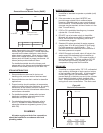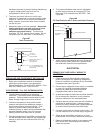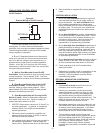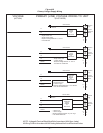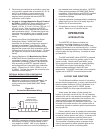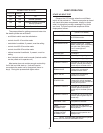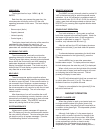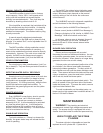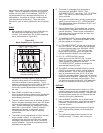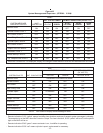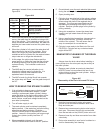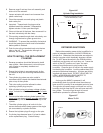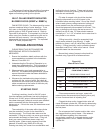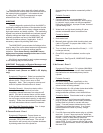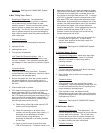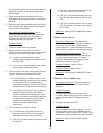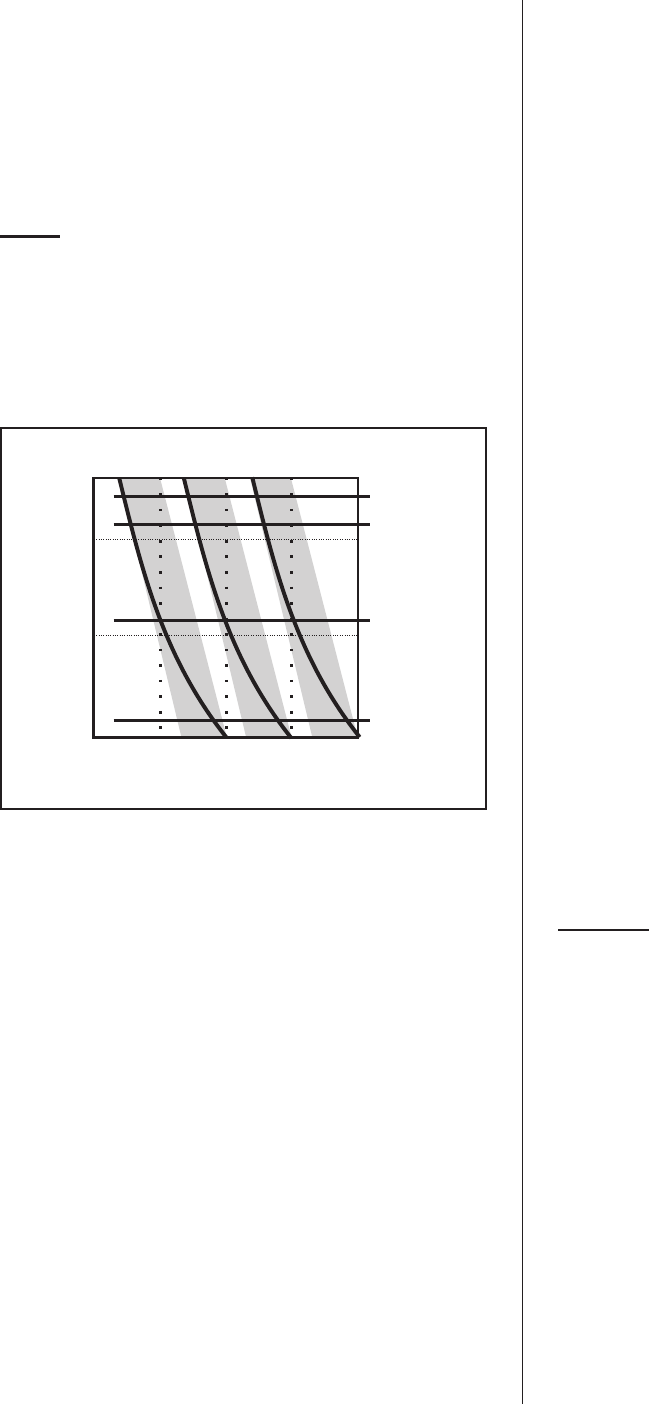
dependent on water supply conditions and humidifier
usage. Failure to replace the cylinder at the end of
cylinder life may result in unit damage. NORTEC is
not responsible for any damages resulting from, or
attributable to, the failure to replace a used cylinder
(see Manufacturer’s Warranty). There are many
indications, each of which signifies the end of cylinder
life.
NHMC
1. After a period of operation (not on initial start-up),
the water level will approach the top of the
cylinder. (Life varies from 500 to 2000 operating
hours, as illustrated in Figure #12.)
2. There will be reduced output in spite of a 100%
capacity setting and/or an unsatisfied demand
from the humidistat for more humidity. This is
evident by monitoring the unit’s output on the LCD
(liquid crystal display) with up to two lines of
continually updated alphanumeric information for
the user.
3. Each NHMC humidifier has an internal
micro-computer that can detect end of cylinder life.
If the cylinder is not changed, the humidifier will
automatically shut down.
4. The unit’s yellow status lamp is activated anytime
there is a system message sent to the LCD where
two lines of alphanumeric information await the
user. System messages are explained in greater
detail later in this manual. Three (3) different
messages will appear, in sequence, as the
cylinder goes from new to spent to needing
replacement.
5. The NHMC is pre-programmed to inform the user
of the cylinder’s status. It is important to
understand the significance of the unit’s system
messages, status lamps and 24VAC circuits for
remote indication. Figure #2 summarizes these
messages and responses.
6. The three (3) messages that will appear in
sequence are “MAXIMAL LEVEL”, then
“CYLINDER SPENT”, and finally “CYL. LIFESPAN
END”. The yellow unit status lamp will be on
during all three.
7. The green unit status lamp, primary contactor and
steam output will stop at “CYL. LIFESPAN END”.
This distinguishes it from “MAXIMAL LEVEL” and
“CYLINDER SPENT”.
8. Each of these three (3) messages has a unique
combination of responses at the terminal strip for
remote indication. These unique combinations
distinguish them from each other and from any
other system message.
9. At “MAXIMAL LEVEL” remote yellow-green-red
are OFF-ON-OFF. (Note that “MAXIMAL LEVEL”
will also appear at unit start-up.)
10. At “CYLINDER SPENT” remote yellow-green-red
are OFF-ON-ON. In other words, the red comes
on as the cylinder ages from “MAXIMAL LEVEL”
to “CYLINDER SPENT”. This gives the user
ample warning (remote red on) to replace the
cylinder before the NHMC shuts itself down.
11. At “CYL. LIFESPAN END” remote
yellow-green-red are ON-OFF-ON. In other
words, the remote green goes off and the remote
yellow comes on in addition to the red if
“CYLINDER SPENT” remains unchanged for
approximately three (3) days.
12. The NHMC is always internally wired to provide
24VAC to the terminal strip for optional external
remote indication. Up to 100 mA is available at
each of three terminal pairs (61-20, 62-40 and
63-36) for activating yellow, green and red optional
external remote indicators, respectively. Any or all
of these remote indicators can be utilized. They
can be field-supplied resistive 24 VAC loads such
as lamps or ordered as options from NORTEC.
NHB/NHP
1. There will be reduced output in spite of a 100%
capacity setting and/or an unsatisfied call from the
on/off humidistat for more humidity. The NHP has
an output display where you will observe that the
capacity of the unit is decreasing.
2. Each NHB/NHP humidifier has a yellow status
lamp, a green status lamp, and a relay for remote
indication. Double units (models NH 150-200)
have two of each.
3. The yellow and green status lamps are long-life
LED’s (light emitting diodes) not incandescent
lamps.
4. The yellow and green status lamps are to be
viewed as a pair. This way, they convey four
-11-
Grains of Hardness
Capacity Adjustment Setting
Cylinder Life Expectancy
(
avera
g
e operatin
g
hours
)
30
20
10
5
100% 50% 25%
500
400
200
100
500 1000 2000 4000 8000
CaCO mg/L (ppm)
3
Figure #12
Water Conditions vs. Cylinder Life



